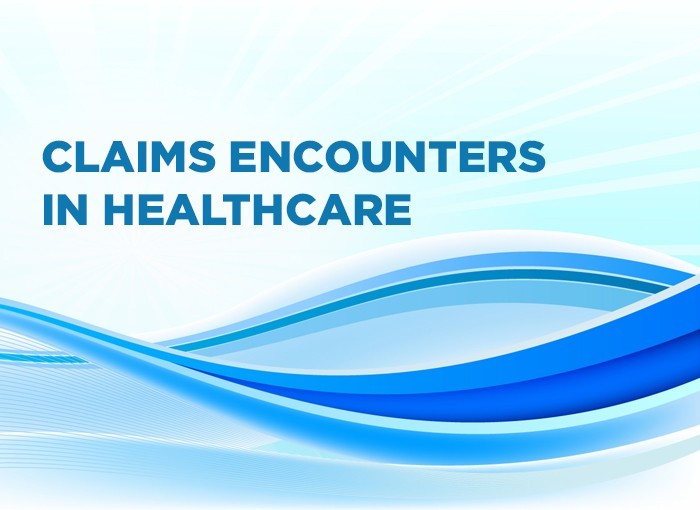What Are Claims & Encounters In Healthcare?
Medical billing is a complex process that involves various documentation and paperwork to get reimbursements from the insurance companies. The process can become overwhelming when handling terms like claims and encounters, which are commonly misinterpreted as the same thing.
What are claims?
In a fee for service arrangement, insurance claims are filed with the insurance companies, where they reimburse the amount for each service after analyzing the supporting documents.The claims constitute the list and codes of the provided services, reasons for treatment selections, supporting documents such as x-rays, medical imaging for both in-patient and out-patient care.
What are encounters?
Encounters come into play in the capitated payment system. In the capitation payment system, the insurance companies pay a pre-decided amount to a third party known as managed care organizations (MCOs). The monthly capitation plan is provided for each enrollee in the insurance plan. The MCOs then pays the healthcare provider for the services rendered to each patient. The payment to the healthcare professionals can be done by either fee for service or capitation plan. Such plans require MCOs to share encounters with the payer on a monthly basis.
The encounters encapsulate data related to each enrollee, such as beneficiary ID, claim type, organization provider number, dates of service, claim processing date, claim control number, diagnosis and procedure codes.The major intent of CMS behind encounter data is risk-adjusted payment process and calculate beneficiary risk scores as it provides a reliable evaluation of data source and ensures it meets programs’ requirements. Additionally, encounter data provides researchers in-depth understanding of program costs, comparing the quality of MA relative to fee-for-service, and gathering actionable insights on provider behavior and user patterns. Additionally, the main purpose of claims is to get payment reimbursement from payers, while the major purpose of encounters is data gathering and analysis.
Why is encounter data important?
CMS states that the goal of encounter data is “enhancing efficiency, improving quality and reducing cost” of Data-Driven Patient Care Strategy. Encounter data provides reliable and in-depth information from a broader spectrum of medical service providers and bolsters frequent reporting systems. Unlike RAPS, encounter data is reported every month, which helps researchers gather real-time insight on the current trend of programs. Furthermore, encounter data also helps to monitor the functioning and performance of healthcare providers on a large scale. It further shares insights on various factors such as capitation rate development, access, and utilization of medical services, accountability of healthcare providers, risk adjustments. The data also bolsters various studies and researches such as small, high-policy-interest populations, community-wide studies along with buttressing regulatory requirements.
How to submit accurate encounter data?
Insurance companies demand high-accuracy in claim submission and documentation. Additionally, every insurance company has its own set of protocols that has to be met in order to process claims. If any of the standards set by the payer is not met, the process can lead to claim denials. It can take upto few months to achieve accurate claim submission and get reimbursement from the insurance companies for the provided services.
Submission of claims as well as encounters requires a profound knowledge of the medical field, insurance policies, and its norms & regulation. An expert has to dedicate time and energy to draft these data as per company protocols to avoid future rejections and denials. However, this whole process can be quite burdening for a healthcare service provider as they have to serve patients, manage the clinic, and hospital along with other management tasks.
With a growing number of beneficiaries enrolling in various insurance policies, it can become difficult to attain the accuracy level to file all the paperwork. Therefore, a major section of professionals is now opting to outsource the medical billing services from experienced companies like Capline Services.
Medical billing companies have teams of prolific experts that not only handle all the documentation work with the required level of accuracy and precision but also handle the claim denials and other required tasks such as medical credentialing, medical insurance verification, medical patient statement, etc. Outsourcing to such companies serves better than hiring a dedicated employee because the responsibility of filing accurate claims is taken over by the billing support companies. Studies have shown that more and more healthcare service providers are switching over to medical billing companies and have marked tremendous growth in their cash flow and revenue cycle management.




